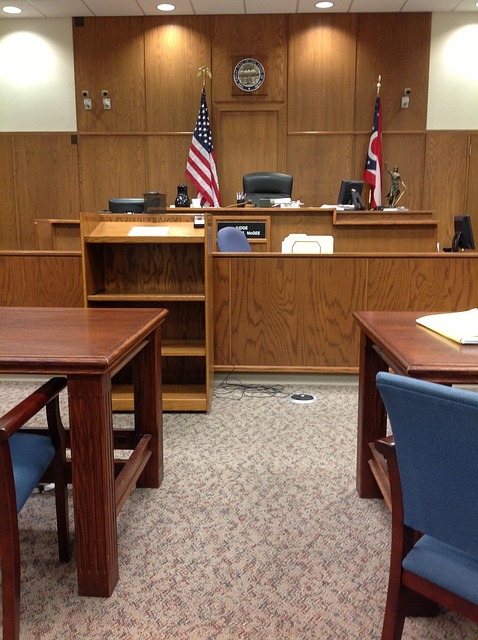Oregon's child welfare system prioritizes protecting at-risk children while upholding the legal rights of their parents or guardians through a complex network of agencies and legal frameworks. Both parties have robust rights, including access to representation, information, and the ability to challenge decisions. Effective collaboration with social workers is key for fair processes, and post-case management ensures family stability and well-being. This balanced approach emphasizes the safety of vulnerable children while respecting the rights of their families, utilizing legal protections like mediation and tailored resources to foster positive outcomes.
“Oregon’s child welfare system, governed by a robust legal framework, ensures the safety and well-being of its youngest residents. This article offers a comprehensive guide to understanding the intricate dynamics of this process, highlighting key legal protections for both children in care and their parents or guardians.
From navigating social worker collaboration to appeals processes and post-case management, we demystify Oregon’s child welfare laws, empowering families with knowledge of their fundamental legal rights.”
- Understanding Oregon's Child Welfare System: An Overview
- Legal Protections for Children in Care
- The Rights of Parents and Guardians
- Involving and Collaborating with Social Workers
- Appeals and Dispute Resolution Processes
- Long-term Support and Post-case Management
Understanding Oregon's Child Welfare System: An Overview

Oregon’s child welfare system is designed to protect and nurture children whose safety and well-being may be at risk. It’s a complex network involving various agencies, professionals, and legal frameworks that work collaboratively to ensure every child has access to essential resources and support. At the heart of this system are the legal rights of both children and their parents or guardians, which are meticulously outlined in state laws and regulations.
Understanding these legal rights is crucial for all involved. Parents have the right to know and participate in decisions affecting their child, including access to case plans, information about potential placements, and opportunities to challenge any actions they believe are unjust. Children, too, have specific rights, such as the ability to express their wishes and maintain relationships with family members, whenever possible, while also receiving the care and services they need to thrive. This balanced approach aims to safeguard both vulnerable children and the rights of their families within Oregon’s child welfare framework.
Legal Protections for Children in Care

Children involved in Oregon’s child welfare system are protected by a series of laws designed to safeguard their legal rights. These protections ensure that children in care receive fair treatment and support throughout the process. One key aspect is the right to legal representation, where every child has the opportunity to have an attorney advocate for their interests. This is crucial as it helps navigate complex legal procedures and ensures their voice is heard.
Additionally, Oregon law emphasizes the importance of maintaining family connections. Children have the legal right to remain connected with their parents or guardians, unless it’s deemed harmful. The state works to facilitate these relationships, recognizing that stability and support from family can significantly impact a child’s well-being and future development.
The Rights of Parents and Guardians

In Oregon, parents and guardians have a multitude of legal rights regarding child welfare cases. They are entitled to be informed about any investigations or proceedings involving their children and have the right to remain silent during interviews, with this information potentially being used against them in court. Parents also have the right to legal counsel and to challenge any decisions made by child welfare agencies, ensuring a fair process throughout the case.
Additionally, parents can request a hearing to contest removal of their child from their care and have the opportunity to present evidence and testimony on their behalf. They are also allowed to access and receive information about their child’s welfare case, subject to certain confidentiality restrictions. These rights aim to protect both the family and the child, ensuring that processes are conducted fairly and transparently while prioritizing the best interests of the child.
Involving and Collaborating with Social Workers

When it comes to Oregon child welfare, one of the key aspects of navigating the system is effective collaboration with social workers. Parents and guardians have legal rights in these situations, and understanding these rights is crucial for ensuring a fair process. Active involvement and open communication with social workers can greatly enhance the outcome for both the child and the family.
Social workers play a vital role in protecting the interests of children while also supporting families. By involving them early and maintaining a collaborative approach, individuals involved in child welfare cases can benefit from their expertise and guidance. This partnership ensures that all parties’ legal rights are respected and allows for a more holistic understanding of the child’s needs.
Appeals and Dispute Resolution Processes

In Oregon, both parents and guardians have established legal rights when it comes to child welfare matters, especially during appeals and dispute resolution processes. These rights ensure fairness and due process throughout any legal proceedings related to a child’s safety, custody, or placement. Understanding these rights is crucial for all involved parties. If a parent or guardian disagrees with a decision made by the Department of Human Services (DHS) regarding their child, they have the right to appeal and seek alternative dispute resolution methods.
The appeals process allows for a thorough review of the initial case, providing an opportunity to present new evidence or arguments that could potentially change the outcome. Mediation, as one of the dispute resolution options, offers a collaborative approach where all parties meet to negotiate a mutually agreeable solution without involving a neutral third party. This process encourages open communication and can lead to quicker resolutions while maintaining respect for the legal rights of both parents and guardians.
Long-term Support and Post-case Management

After a case of child welfare involvement, ensuring long-term support and effective post-case management is crucial to the well-being of the child and family. This includes providing resources and services that address not only immediate needs but also long-term goals. Legal rights and protections play a significant role in this process, offering stability and security for both the child and parents as they transition through various stages of care and custody.
Post-case management involves ongoing support and monitoring to prevent reentry into the child welfare system. This can include therapy, family counseling, educational assistance, and job training programs tailored to meet the unique needs of each family. By offering these services, legal systems and child welfare agencies aim to empower families with the tools necessary to thrive independently while maintaining a safe and nurturing environment for the child.
